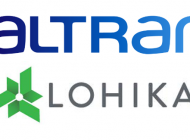Over the last several years and shortly after Bulgaria’s accession to the EU in 2007, the country can be viewed as having undergone a transitional and developmental period in its economy. As is often the case in such circumstances, IT and ICT sectors thrive and grow rapidly, so it comes as no surprise that Bulgaria’s IT sector has seen an average annual increase of 17% since 2007. In this light, the Bulgarian IT labour market is among the fastest developing in Europe, with remuneration packages, qualifications of professionals and development opportunities reaching the highest levels in Bulgaria’s labour market.
In 2006, many large foreign investment companies such as Hewlett-Packard, SAP Labs, and Johnson Controls began to expand their businesses to Bulgaria, thus creating a large number of highly-paid job opportunities. However, the financial crisis of 2007, followed by the so-called ‘second wave’ in 2009-2010 led the Services and IT sectors to employ hiring freeze policies and to slightly lower salaries. Still, in comparison with other sectors, IT retains its relevant stability.
According to an annual survey on the compensation levels of IT specialists in Bulgaria, conducted by Alpha Research and Computerworld in 2010, the average net monthly salary is 520 EUR, which is a 2.25% increase from the 2009 level. To arrive to the gross salary one must add 23% for social insurance and income tax, and an additional 17.4% will bring the figure to the total cost of employment.
An overview of IT compensation packages can be grouped according to several factors: location, education and qualifications, and experience.
Firstly, it is worth mentioning that as data from REED, the leading UK employment agency, reveals, over 50% of Bulgaria’s workforce is located in the country’s South West district, with Sofia accounting for 20% of total employees. Not surprisingly, salary levels in the Sofia District are significantly higher in comparison with other major cities. For example, data from Bulgaria’s top recruitment specialist, jobs.bg, displays that starting net monthly salaries in Varna and Plovdiv range around 250-300 Euros, while in Sofia and the surrounding region they are in the 400-500 Euros range.
According to data from The Economist and World Bank, Bulgaria ranks 5th in the world in terms of secondary education in the sciences, has over 6000 university students in computer sciences and ranks 3rd worldwide in the number of certified IT professionals. To illustrate this, we can examine the data from the National Employment Agency for 2010/2011, according to which 26% of IT specialists hold a Bachelor’s degree and 42% have obtained a Master’s degree. Salaries are also higher for specialists holding recognised ICT certificates, with 72% of network specialists obtaining one or more qualifications, 33% of project managers and 26% of software developers. Graduates are typically offered a starting salary of about 460 Euros, according to data from a survey conducted in 2011 by Bulgaria’s leading business and economics newspaper, Capital. The survey also points out that the most preferable university by employers is Technical University Sofia (63.3%), followed by University of Sofia and New Bulgarian University.
Currently, starting salaries for PHP/MySQL developers are in the 500 Euros range; specialists with 2-3 years experience are offered net monthly salary of 770-920 Euros, and 920-1020 Euros for over 3 years experience. .Net developers earn from 610 Euros net, per month and can gain up to 1300 Euros net per month after a few years of experience. C/C++ and embedded developers’ salaries typically range in the 610-920 Euros margin. Java developers, considered the highest paid, are usually offered 770 Euros. However, in companies such as SAP Labs, the figure can reach up to 1800 Euros. It is in such foreign investment companies that IT specialists with experience of 5-15 years can reach salary levels over the average for the country. Nonetheless, many employers are currently lowering compensation packages for system administrators, support staff and engineers.
On the whole, with experience and qualifications, the Bulgarian IT market can offer salaries and development opportunities significantly higher than the national average. Nevertheless, it should be mentioned that while most large captive centres aim to maintain a high level in their employment policies, most other local businesses are struggling with the economic downturn and are lowering salaries and costs. What is more, Bulgaria still employs a tradition in not announcing compensation packages openly and salaries can often depend on the employee’s negotiation skills.











